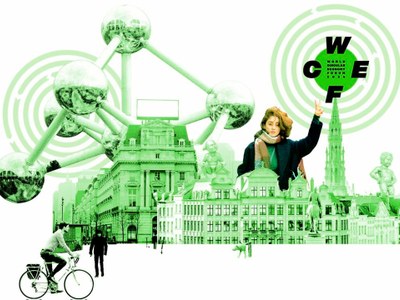The circular economy model, one of the main pillars of ULMA's sustainability strategy
The circular economy, as defined by the Ellen MacArthur Foundation, is a "framework of systemic solutions that addresses global challenges such as climate change, biodiversity loss, waste and pollution".
In contrast to linear economics, it is based on three principles: eliminate waste and pollution, circulate products and materials and regenerate nature. Since the first mention of the term in 1989 by Pearcey and Turner, the concept has grown steadily and has become part of mainstream political and business sustainability strategies. From the first three R's, (Reuse, Repair, Recycle), the concept has evolved to integrate all stages of the production and consumption processes, now comprising up to nine R's: rethink, reuse, repair, restore, remanufacture, reduce, repurpose, recycle and recover.
At ULMA, we have been using the circular economy model for years. The majority of our business is based on the rental of shoring and formwork, and we carry out the necessary maintenance to extend their useful life and keep them in optimum working condition for as long as possible.
In addition to the circularity of our activity in itself, we seek to reduce the consumption of raw materials through the incorporation of circular economy concepts in the design phase, reducing the amount of raw materials needed to manufacture our products and seeking to extend their useful life.
Finally, following another of the principles of the circular economy, we try to minimise the amount of waste we generate. We therefore hold the Zero Waste certificate both in our factory located in Oñati and in our main adjustment device warehouse, located in Ajofrín, Toledo. This certification ensures that we recover at least 90% of the waste generated. In our case, this figure rises to 92% of waste recovery in the factory and 97% in the Toledo warehouse.
By doing so, we strive to apply the economy model in a cross-cutting manner in our activity, this being one of the main pillars of our sustainability strategy. We have joined a transformation, which is growing stronger every day, in order to promote economic development that does not deplete resources, and is respectful of the environment and people.
Global initiatives such as the annual World Circular Economy Forum help to promote the development of the circular economy in all sectors and bring together actors with different expertise and interests, such as academia, industry, public authorities and civil society.


